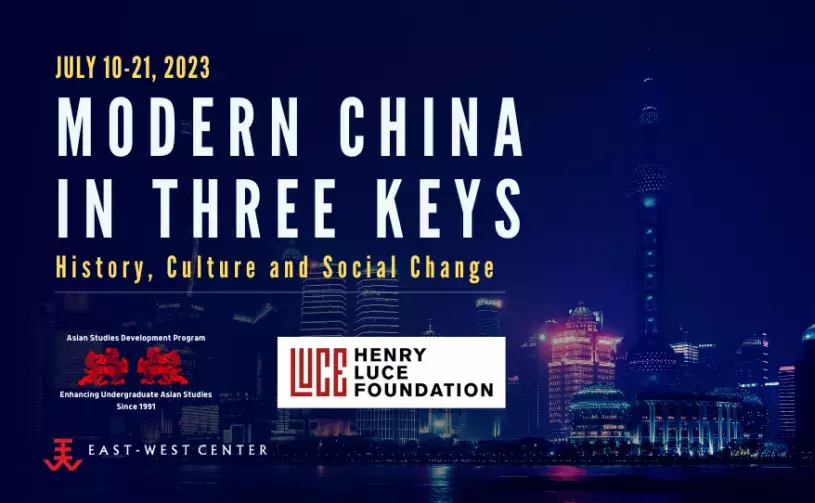Error message

DIRECTORS’ BIOS
Shana BROWN is associate professor and department chair of History at the University of Hawai‘i at Mānoa. Her work traces the profound cultural and social changes experienced in 19th and 20th century China, centering in particular on the impact of key intellectual, artistic, and scientific trends. Her research has often focused on the history of media and pictorial representation, using visual sources to explain the "world picturing" and mental mapping of Chinese intellectuals and social activists more broadly. Her first book examined the roots of modern Chinese historical research in art practice, identifying the linkages among several generations of collectors, calligraphers, and paleographers whose discoveries came to be considered the beginnings of modern academic historical research. More recently, her work has explored how Chinese women played a large role in intellectual culture, as artists, writers, historians, and curators. Another ongoing project is a study of leftist photography in World War II in Asia. Since 2020, Professor Brown has been teaching a popular class on World History of Human Disease and researching the significance of Chinese public health policies in its struggles over sovereignty and stability, particularly in respect to the US and other Asia-Pacific neighbors, including Hawai‘i.
Peter D. HERSHOCK is Director of the Asian Studies Development Program and Coordinator of the Humane AI Initiative at the East-West Center in Honolulu. His philosophical work makes use of Buddhist conceptual resources to address contemporary issues of global concern. He has authored or edited more than a dozen books on Buddhism, Asian philosophy and contemporary issues, including: Reinventing the Wheel: A Buddhist Response to the Information Age (1999); Buddhism in the Public Sphere: Reorienting Global Interdependence (2006); Valuing Diversity: Buddhist Reflection on Realizing a More Equitable Global Future (2012); Public Zen, Personal Zen: A Buddhist Introduction (2014); Philosophies of Place: An Intercultural Conversation (edited, 2020); Human Beings or Human Becomings? A Conversation with Confucianism on the Concept of Person (edited, 2021); and Buddhism and Intelligent Technology: Toward a More Humane Future (2021).
DIRECTORS’ BIOS
Shana BROWN is associate professor and department chair of History at the University of Hawai‘i at Mānoa. Her work traces the profound cultural and social changes experienced in 19th and 20th century China, centering in particular on the impact of key intellectual, artistic, and scientific trends. Her research has often focused on the history of media and pictorial representation, using visual sources to explain the "world picturing" and mental mapping of Chinese intellectuals and social activists more broadly. Her first book examined the roots of modern Chinese historical research in art practice, identifying the linkages among several generations of collectors, calligraphers, and paleographers whose discoveries came to be considered the beginnings of modern academic historical research. More recently, her work has explored how Chinese women played a large role in intellectual culture, as artists, writers, historians, and curators. Another ongoing project is a study of leftist photography in World War II in Asia. Since 2020, Professor Brown has been teaching a popular class on World History of Human Disease and researching the significance of Chinese public health policies in its struggles over sovereignty and stability, particularly in respect to the US and other Asia-Pacific neighbors, including Hawai‘i.
Peter D. HERSHOCK is Director of the Asian Studies Development Program and Coordinator of the Humane AI Initiative at the East-West Center in Honolulu. His philosophical work makes use of Buddhist conceptual resources to address contemporary issues of global concern. He has authored or edited more than a dozen books on Buddhism, Asian philosophy and contemporary issues, including: Reinventing the Wheel: A Buddhist Response to the Information Age (1999); Buddhism in the Public Sphere: Reorienting Global Interdependence (2006); Valuing Diversity: Buddhist Reflection on Realizing a More Equitable Global Future (2012); Public Zen, Personal Zen: A Buddhist Introduction (2014); Philosophies of Place: An Intercultural Conversation (edited, 2020); Human Beings or Human Becomings? A Conversation with Confucianism on the Concept of Person (edited, 2021); and Buddhism and Intelligent Technology: Toward a More Humane Future (2021).

